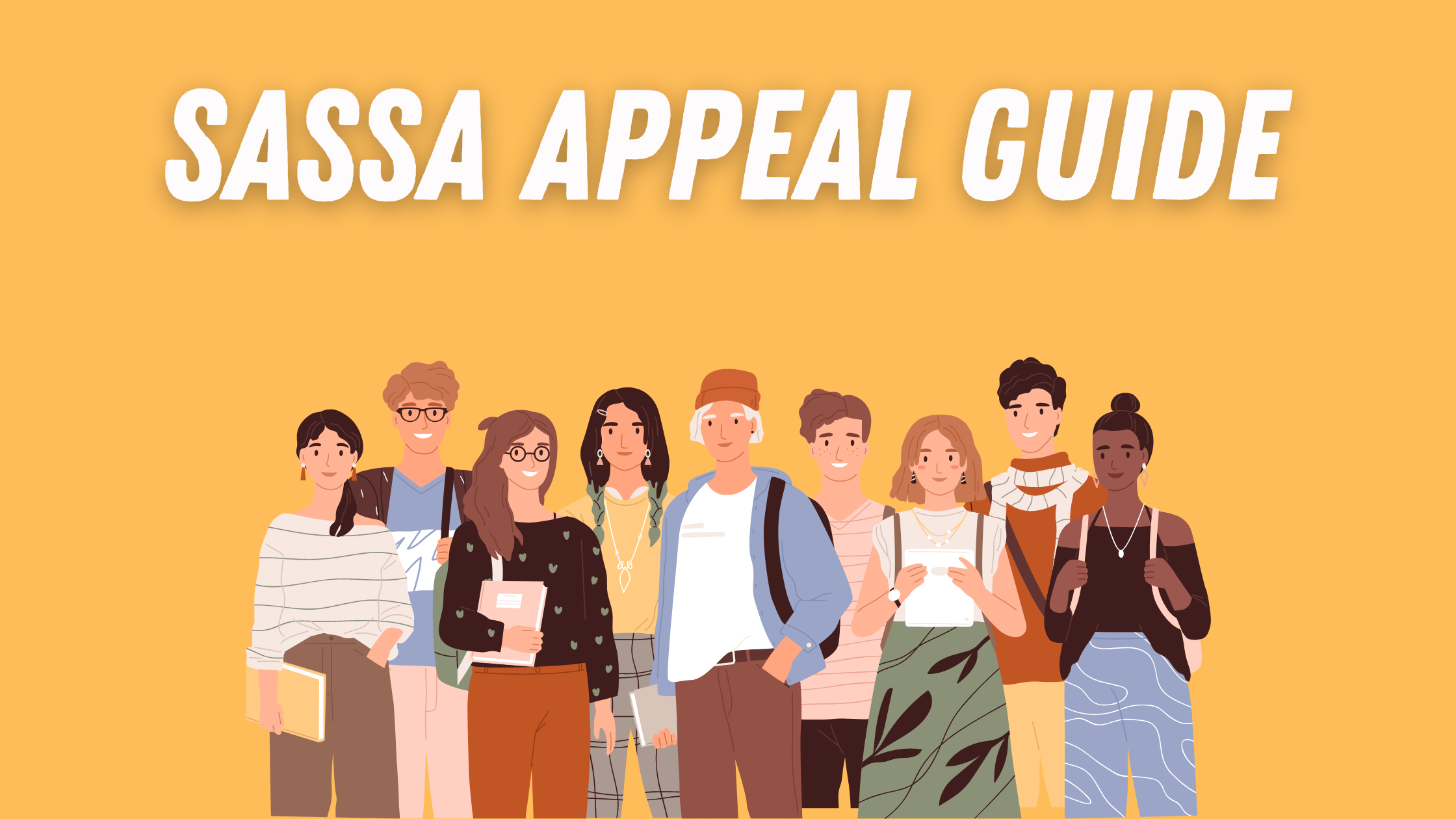For many South Africans, The South African Social Security Agency (SASSA) plays a vital role in providing them with the much-needed economic aid. While its essence is widely acknowledged, the procedures involved, specifically when it comes to making an appeal, may not be as universally understood.
This guide aims to inform you about the SASSA appeal process, making it easier for the general public to exercise their right to contest decisions they deem unfair. It takes you through the fundamentals; what a SASSA appeal is, the conditions that would prompt you to make one, as well as the history and the foundation of SASSA itself.
What is a SASSA Appeal?
In the context of SASSA, an appeal is a legal request made by a citizen who feels that their application for a social grant has been unfairly or unjustly rejected. When an individual applies for a grant and gets denied, they have the right to challenge this decision, and this is where the concept of a SASSA “appeal” comes into play.
Numerous circumstances could lead to the submission of a SASSA appeal. Among the most common include dissatisfaction with the decision made by the grant officer regarding an application.
For example, an applicant may feel that the decision was unjust or unfair. It may also be a matter of a simple misunderstanding, an error in assessing an application, or undisclosed information that negatively affected the outcome. In these cases, the applicant will usually submit an appeal, hoping that the decision can be reversed or reconsidered.
How To File A SASSA Appeal
The SASSA (South African Social Security Agency) appeal procedure provides those who have been denied social assistance a chance to have their cases reviewed. By fully comprehending the procedure and sticking closely to the specified guidelines regarding the necessary paperwork and completion of forms, an individual can navigate this often complicated process more easily.
Filing an Appeal
The first stage in the SASSA appeal procedure is lodging, or filing, your appeal. This must be done within 90 days of receiving the original decision for your social assistance application from SASSA. The person lodging the appeal must complete the Form for Appeal against the Decision of the Agency – Annexure A1 — also known as Z83 form.
Documents Needed for Appeal
When presenting the appeal, it’s important to prepare and bring along all the necessary documents. You’ll need a valid South African identification document, a SASSA green card, and the written decision from SASSA about your original application. If you’re lodging an appeal on someone else’s behalf, you’ll also need a signed letter of permission from them, along with copies of their ID and SASSA card, and you must also have your own ID.
Submitting the Appeal
The appeal must be submitted to the regional or district office of the Ministry of Social Development within your respective province. It is crucial to make sure all sections of the application form are filled out accurately and legibly, as any inconsistencies or missing information could cause further delays in processing the appeal.
What Happens Next
Once the appeal is lodged, a series of steps will follow. These include the assessment of the appeal by an Appeals Tribunal, which is an independent body appointed by the Minister of Social Development for a five-year term.
The tribunal has the power to either uphold your appeal, dismiss it, or send it back to SASSA for further investigation. To ensure transparency, the tribunal must provide written reasons for their decision.
The Waiting Game
Patience becomes key after lodging the appeal. It can take a while for the appeal to be processed — ranging from three months to a year, depending on the complexity of the case and the number of other appeals being processed. You can check the status of your appeal here.
During this period, it is important to keep all documentation and communication about the appeal in a safe place. Regular follow-ups with the regional or district office are advised so you can check on the progress of your appeal.
SASSA Appeal Decision
When it comes to the outcomes of a SASSA appeal, there are three possible scenarios one could face: acceptance, rejection, or only partial acceptance. Each possibility not only carries unique implications for the applicant, but also presents different opportunities and directions for them to take after the decision has been made.
Acceptance: When SASSA Appeals Succeed
In the event of a successful appeal, the applicant will receive funds disbursed by SASSA that they were previously denied. First, an approval letter is sent to the beneficiary. Subsequently, SASSA schedules disbursements based on the applicant’s specific grant application and nature of their qualification. It’s vital to check any details and arrangements included in the approval letter—a small oversight could lead to delays or unnecessary complications.
Rejection: When SASSA Appeals Fail
Rejection of a SASSA appeal signifies that the decision-makers upheld the original decision and denied the appeal. It doesn’t necessarily denote the end of the road for the applicant as legal alternatives might be available. Individuals might opt to take their case to court, employing the services of a lawyer or a public interest law group. Others might consider reaching out to local non-governmental organizations, advocacy groups, or social workers who can provide advice and guidance on next possible steps, including the possibility of reapplication if applicable.
Partial Acceptance: A Combination of Both
Despite appearing confusing, a partial acceptance typically means that part of the appeal was successful while other components were not. Let’s say an applicant applied for two different types of grants and appealed after they were both rejected. If one application is subsequently approved during the appeal process and the other remains denied, it results in a partial acceptance. Like the other outcomes, this requires careful reading and understanding of the decision sent by SASSA to glean the exact details and implications.
Post-Appeal Actions and Considerations
Following an appeal result, it’s prudent to determine the potential for follow-up actions. Those who find themselves unsuccessful might contemplate gathering additional evidence or documentation to bolster their claim and potentially initiate a new appeal or seek legal advice.
Successful applicants, especially in cases of partial acceptance, might ponder whether to appeal the portions of the judgment not in their favor, or they might decide to accept the decision as is due to the costs and stress associated with further appeals. It’s crucial that each person assess their situation, potentially with the help of a social worker or legal professional, before determining the best way forward.
What To Do If Your SASSA Appeal Was Rejected
If your SASSA appeal has been rejected, and you believe that the decision was unfair or incorrect, you still have options to pursue. Here are some steps you can take:
Review the rejection letter: The letter should provide reasons for the rejection of your appeal. Once you can identify the reasoning you can look to get more information.
Seek clarification: In the interest of the most detailed response, we recommend reaching out to the SASSA helpline or visit a local SASSA office to speak with a representative. They will be able to tell you why the application was rejected and what other additional evidence you can provide to get approved.
Provide additional evidence: If you believe that there was a misunderstanding or missing information during the initial appeal, gather any additional evidence that could strengthen your case. This might include medical records, financial documents, or any other relevant information to support your eligibility.
Reapply or submit another appeal: After getting recommendations for providing additional evidence you may reapply or submit another appeal. Make sure to include any additional documents to support your case in the next appeal.
Conclusion
Understanding the SASSA appeal process and potential outcomes allows for greater empowerment and efficient navigation through this system. The knowledge of what steps to follow once the appeal results are announced serves as a practical guide for individuals.
The importance of this process lies in its ability to provide a platform for applicants to voice their concerns or dissatisfaction with a decision made by SASSA, thus promoting accountability and fairness. Remember, your right to appeal against any decision is an integral part of ensuring the mandate of SASSA to administer quality social security services to eligible South Africans is carried out effectively and justly.


